What Is Vitamin C?
In our daily lives, we need vitamin C especially during the winter to protect our bodies. Vitamin C (L-abscorbic acid) is a water-soluble vitamin that can’t be produced by humans. So we are dependent on outside sources for vitamin C, the most commonly known sources are citrus fruits which protect us from flu. Vitamin C deficiency can cause scurvy, fatigue, weakness, and fragility. The good news is that increasing your fruit and vegetable intake will automatically help you fulfill your daily Vitamin C need.
What Are the Functions of Vitamin C in the Body?
- Collagen production
- Wound healing
- Protein metabolism
- Antioxidant
- Strengthens immune system
- Absorption of non-heme iron
- Skin health
- Connective tissue health
- Bone and teeth health
Vitamin C Sources
92 mg of vitamin C should be consumed to fulfill the daily need. Here are some fruits & veggies that you should add to your diet to get an adequate amount of vitamin C.
Guava
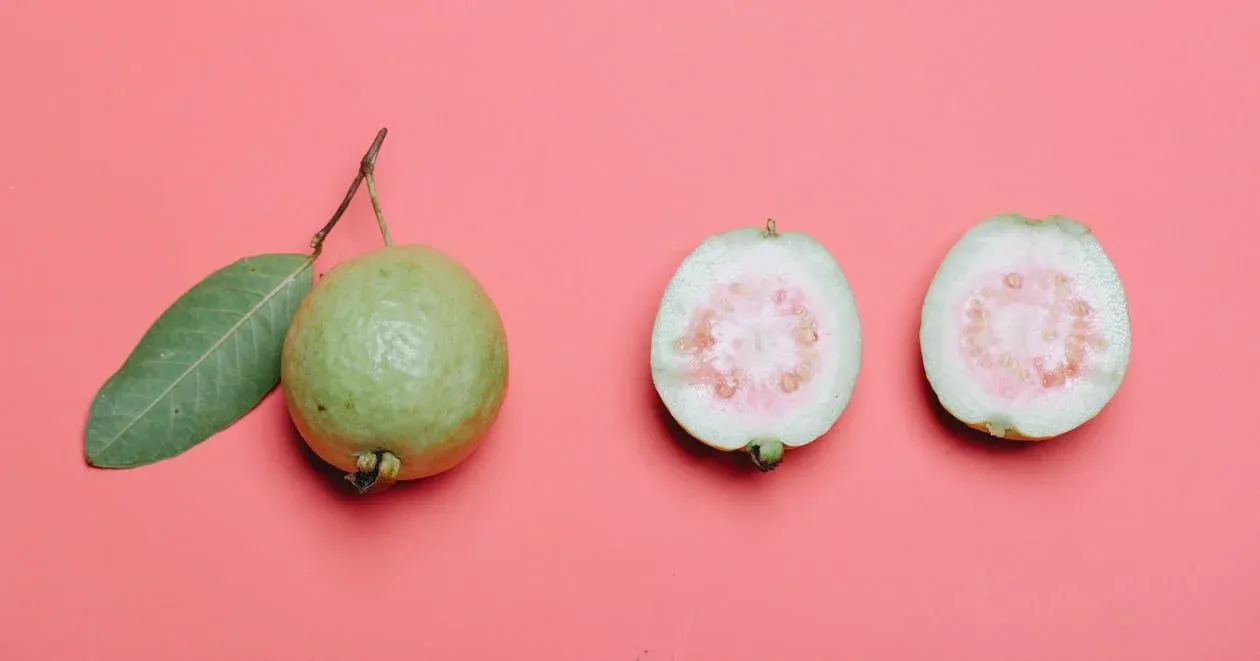
Guava is a tropical fruit found in Mexico and South America. This fruit with pinkish inner part has 126 mg vitamin C in one single fruit and also has antioxidant property. A study showed that blood pressure and total cholesterol lower when one guava is consumed daily. It has 228 mg Vitamin C per 100 grams which makes 248% of daily needs. (377 mg Vitamin C per serving-1 cup, 165g)
Bell Peppers
Bell peppers have 128 mg of Vitamin C per 100 ml and are 139% of the daily needed vitamin C. Something interesting to note is that red bell peppers have 50% more vitamin C compared to green ones. So start adding bell peppers to your dishes today. (190 mg Vitamin C per serving-1 cup, 149 g)
Kiwifruit
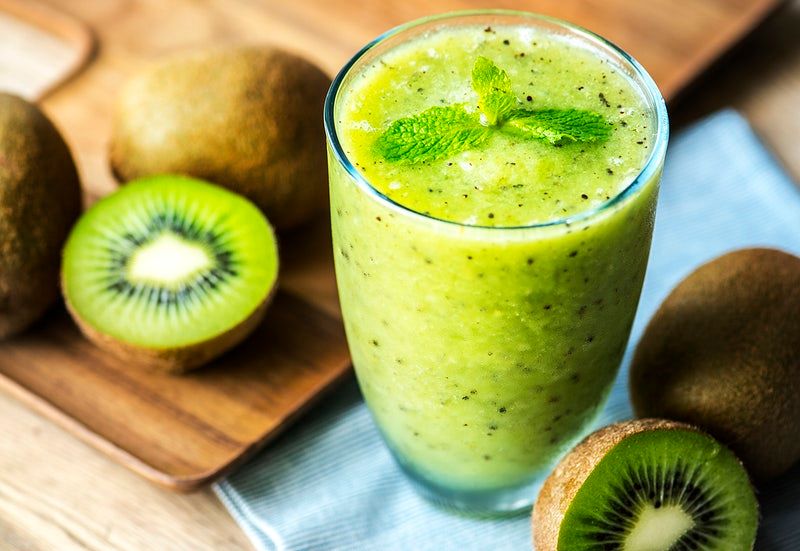
Kiwi fruit is a rich source of Vitamin C that has 93 mg per 100 grams that is 101% of daily recommended intake. It has the benefit of reducing oxidative stress by lowering free radicals in your body, lowering cholesterol and enhancing your immune system. (164 mg Vitamin C per serving-1 cup, 177 g)
Broccoli
Broccoli comes to mind when we are talking about a healthy lifestyle and that’s no coincidence. 100 grams of broccoli contains 89 mg Vitamin C which makes 96.7% of our daily dose. Also, inflammation in your body is reduced by half with the consumption of broccoli. (81.2 mg Vitamin C per serving-1 cup, 91 g)
Brussels sprouts
Brussels sprouts are rich in fiber, contain Vitamin K, Vitamin A, manganese and potassium besides vitamin C. They enhance bone health and help form collagen in the body. With 85 mg Vitamin C per 100 gram it is 92% of DRI.(Cooked contain 48.4 mg vitamin C per serving-1/2 cup, 78 g)
Lemon
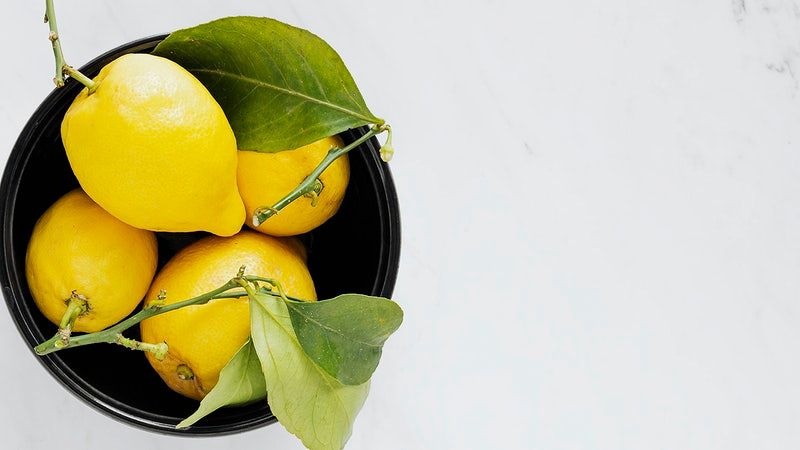
Lemon is one of the things that comes to mind when you talk about Vitamin C. 100 grams of lemon can fulfill the 83% of daily Vitamin C need with 77 mg Vitamin C, so we can definitely say it is a good source. It has also the antioxidant property that’s why you can try adding lemon to your water, salad, or tea and benefit from this fruit every day. (83.2 mg Vitamin C per serving-1 fruit, 108 g)
Papaya
Papaya contains 62 mg of Vitamin C in 100 grams and meets 67% of DRI. It has positive effects on memory and reduces inflammation in the brain. Reduction in brain inflammation has been seen in patients with mild Alzheimer's. (86.5 mg Vitamin C per serving-1 cup, 140 g)
Strawberries
Strawberry is one of the favorite fruits of summer and spring, plus it is rich in Vitamin C. 100 grams of strawberry contains 58.8 mg of vitamin C which meets 64% of daily needs. This sweet fruit is also helpful to prevent cancer, dementia, vascular disease, and diabetes with its high antioxidant properties. (89.4 mg Vitamin C per serving-1 cup, 152 g)
Oranges
Oranges are our protectors during wintertime, with 53 mg of Vitamin C per 100 grams totaling 57% of DRI. It’s advised to eat citrus fruits regularly to fulfill daily Vitamin C needs. You can add orange juice to your breakfast easily to protect yourself from the flu. (121 mg Vitamin C per serving-1 cup, 170 g)
Cauliflower
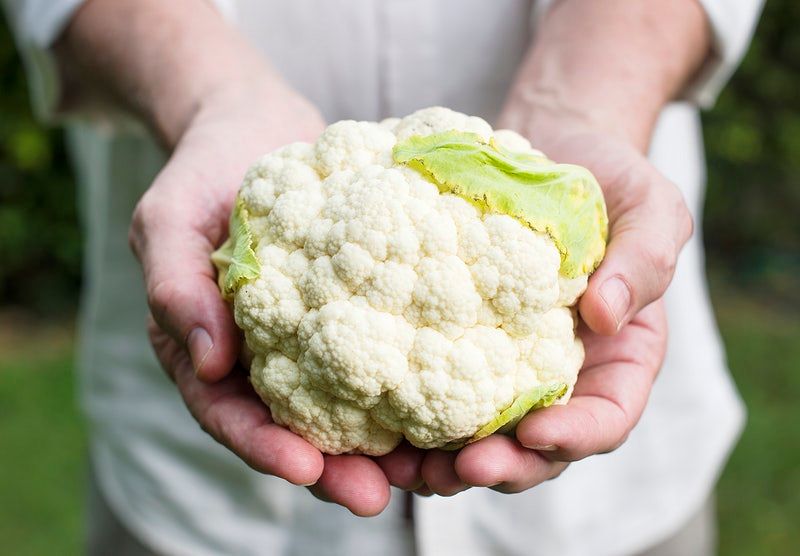
Cauliflower contains 48 grams of Vitamin C in 100 grams which makes 53% of daily requirements. You also get fibers and protein when you eat cauliflower. There are many recipes that you can try by roasting, steaming, or mashing. (Raw cauliflower has 46.4 mg Vitamin C per serving-1 cup, 100 g)
Pineapple
Pineapple is a sweet tropic fruit that has 47.8 mg of Vitamin C in 100 grams equaling 52% of DRI. Besides the benefit of Vit-C, pineapple contains antioxidants, fiber, manganese, and is helpful in fighting inflammation and disease.(27.9 mg Vitamin C per serving-1 cup, 165 g)
Mango
Mango is a good vitamin C source with 36.4 mg Vitamin C in 100 grams which is 40% of the DRI. There’s also vitamin A. Both these vitamins combined boost your immunity and enhance your eye health. (45.7 mg Vitamin C per serving-1 cup, 165 g)
Grapefruit
This citrus fruit is the sibling of oranges and is a good source of vitamin C. Grapefruit is also rich in lycopene and vitamin A, so you can mix it together with orange juice to get extra antioxidants in your body. 100 grams of grapefruit contains 31.2 mg vitamin C with 34% daily recommended value. (71.8 mg Vitamin C per serving-1 cup, 230 g)
Tomato
Tomato is a vegetable we frequently use in our kitchens, easily adding to vegetable salads, and sauces. With 23 mg of Vitamin C per 100 grams, making 25% of the daily recommended value. Tomatoes are also rich in lycopene antioxidants and reduce the risk of cancer and heart diseases. (15.6 mg Vitamin C per serving-1 medium whole, 123 g.)
Potato
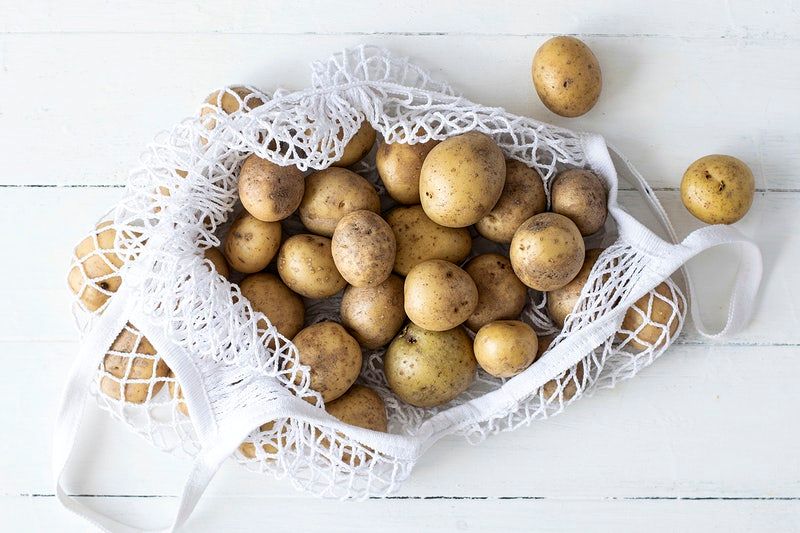
Potato is a surprising vegetable to have vitamin C in it. 100 grams have 19.7 mg vitamin C which covers 21.4% of DRI. You can add baked or steamed potato to your meals as a side dish and easily fulfill your daily Vitamin C need. (Baked potato has 28.7 mg Vitamin C per serving-1 large potato,299 g)
General Suggestion
You can get the daily vitamin C you need if you have a balanced diet consisting of vegetables and fruits. However, there are some cases to consider. Smokers should get more vitamin c compared to nonsmokers since they need to repair the damage. Also, malabsorption in your body can make the same effect and increase your daily Vitamin C need.
Another thing to consider is cooking methods. Boiling vegetables in water can cause a loss of vitamin c because vitamin c is water-soluble. Steaming can be a better option for these vegetables. Additionally, try to consume fruits without juicing them and if you want to drink them as juices, try to drink them within 30 minutes of preparing.
Related: 3 Simple Ways to Keep Your Immune System Strong















